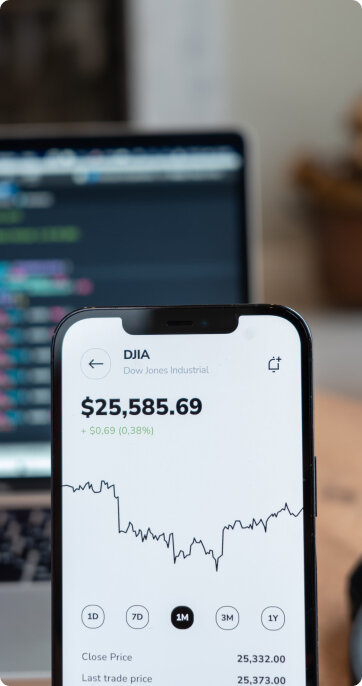Marketing
SEO website promotion
Website promotion and optimization - we will bring you to the top of the search results for maximum traffic
Website promotion and optimization - we will bring you to the top of the search results for maximum traffic

Website promotion is the key to your online success. This process includes a set of strategies aimed at increasing the visibility of your website in search engines, social networks, and other online resources. The goal of promotion is to attract more visitors, increase traffic, and, as a result, increase sales or brand awareness.
Website promotion includes SEO (search engine optimization), content marketing, social media marketing (SMM), and contextual advertising (PPC). Thanks to these methods, your website becomes more visible to potential customers, which allows you to stand out from the competition, increase brand awareness, and achieve long-term success. Entrust your promotion to the professionals of our digital agency and see real results.


SEO helps to raise your website to higher positions in search results, which increases its visibility to potential customers.
By optimizing your website for keywords, you will attract the audience that is looking for specific products or services.
Unlike paid advertising, the results of SEO promotion can be maintained for a long time, ensuring a steady stream of visitors.
SEO includes optimization of the site structure, loading speed, and ease of navigation, which makes the site more attractive and user-friendly.
An optimized website has a better chance of outperforming competitors in search results, which will lead to an increase in profits, traffic, and the number of customers.
SEO promotion is relatively inexpensive compared to other types of advertising, while providing a high return on investment.

SEO is a set of measures that improve a website's position in search engine results. It includes technical optimization, internal content optimization, external promotion, and local SEO. The goal of SEO is to increase organic traffic to a website.
PPC (Pay-Per-Click) is an online advertising model where you pay for each click on your ad. Contextual advertising allows you to quickly attract targeted traffic as ads are shown to users who are looking for your products or services.
SMM is the use of social platforms to promote a brand, attract an audience, and increase traffic to a website. The main social networks for SMM are Facebook, Instagram, Twitter, LinkedIn, and TikTok. Social media marketing includes creating and publishing content, interacting with users, running advertising campaigns, and analyzing the results.
Content marketing focuses on the creation and distribution of useful, relevant, and valuable content to attract and retain the target audience. It can be blogs, articles, videos, infographics, and podcasts. The goal of content marketing is to increase brand awareness, drive traffic, and promote conversions.
Influencer marketing involves working with bloggers, influencers, and opinion leaders who have a large audience on their social media. Influencers can promote your product or service, increasing brand credibility and attracting new customers.
Affiliate marketing is the cooperation with partners who promote your products or services through their platforms (websites, blogs, social networks) in exchange for a commission for each sale or action made. It is an effective way to expand your reach and increase sales.
specialists
approach
quality
competence
communication
and budget

Website audit is the first and most important step in SEO promotion, which includes a comprehensive check of the technical condition of the site, its structure, content, and other key aspects.
The main goal of the audit is to identify problems that prevent the site from ranking high in search engines. This includes checking the loading speed, mobile adaptability, indexing settings, internal links, meta tags, and other technical elements. The audit results are used to develop a further optimization strategy.
An SEO strategy is a detailed plan of action aimed at improving a website's position in search engines. It includes setting goals, selecting keywords, analyzing competitors, and determining the most effective methods to achieve the goals.
The strategy takes into account both internal and external optimization, content development, links, social signals, and other factors. A well-developed SEO strategy helps to systematically and consistently increase website visibility and attract the target audience.
Internal optimization covers all measures aimed at improving the technical and content aspects of a website that affect its visibility in search engines. This includes optimization of meta tags (title, description), headings (H1, H2), URLs, internal links, images, and multimedia.
It is also important to optimize the site's loading speed and ensure its mobile adaptability. Internal optimization contributes to better indexing of the site by search engines and improves the user experience.
Content optimization is aimed at creating and improving the textual and multimedia content of a website. This includes using relevant keywords, creating unique and useful content that meets the needs of users.
An important aspect is also the optimization of the content structure, the use of headings, lists, images with alt tags. Optimized content helps not only to increase the visibility of a website in search engines, but also to retain visitors and turn them into loyal customers.
Off-page SEO includes measures aimed at increasing the authority of a website through external resources. The main aspect is to create and build high-quality backlinks from reputable websites. This helps to increase the trust of search engines in your website.
In addition, external promotion includes social media activity, cooperation with bloggers and influencers, participation in forums and online communities. All these actions help to improve website rankings and increase traffic.
Field Experience
Done Around World
Client Satisfaction
Established On
Response Time